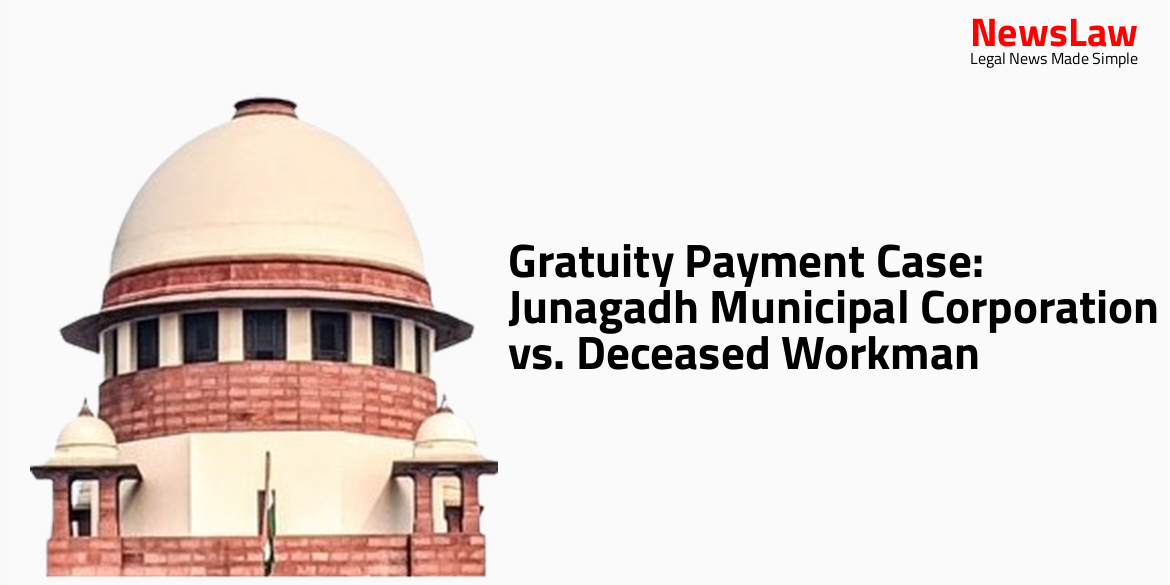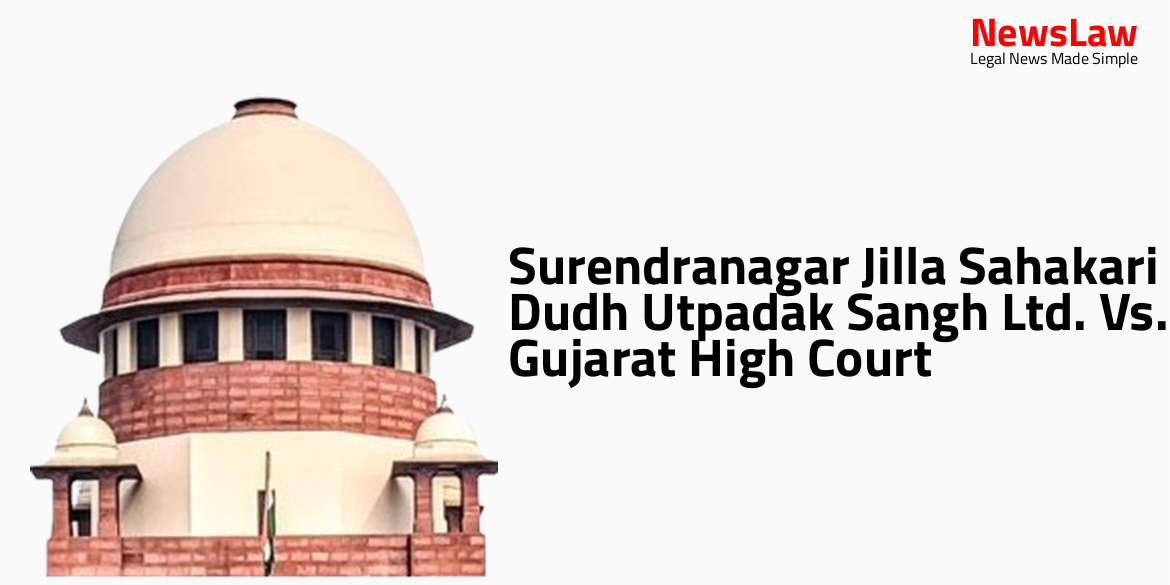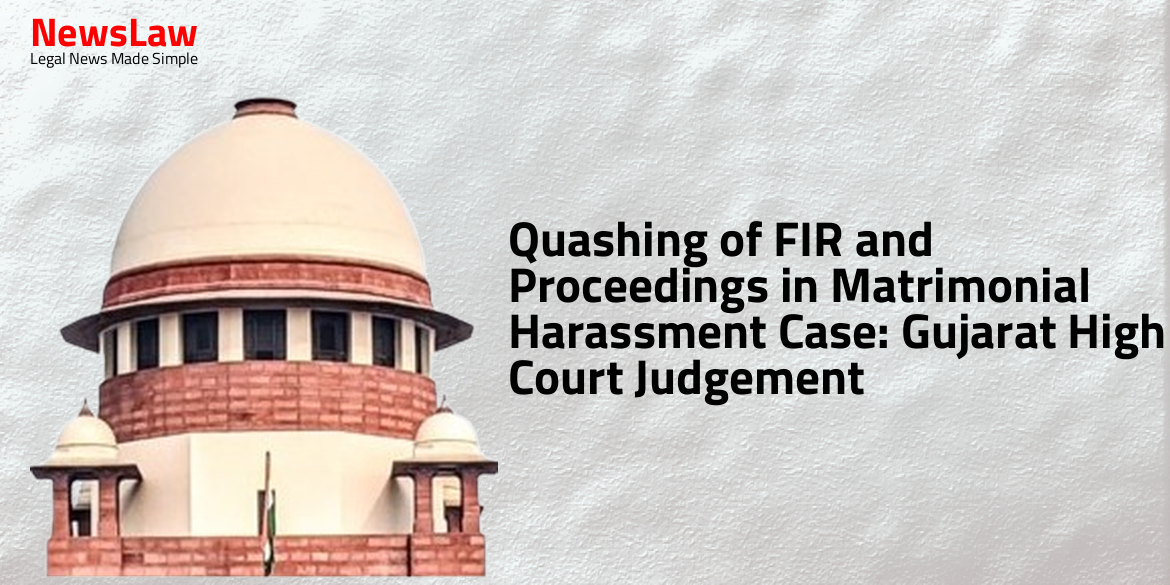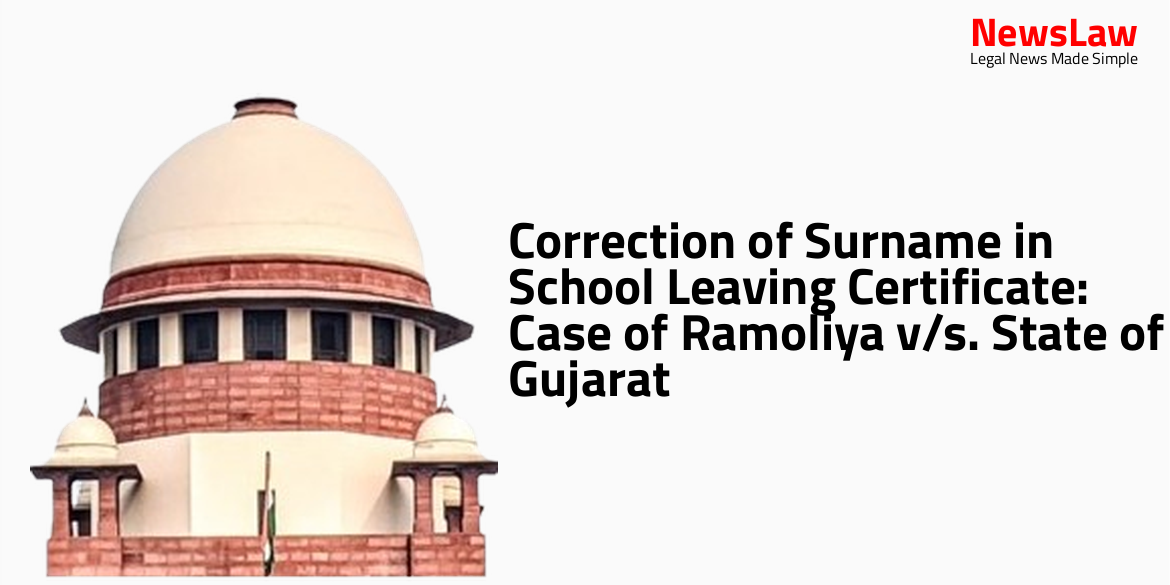In a significant legal case concerning gratuity payment, the Gujarat High Court has made a ruling regarding Junagadh Municipal Corporation and the deceased workman. The issue at hand involves the entitlement to gratuity from a specific date and the completion of required days of actual employment. The court’s decision sheds light on the interpretation of labor laws and the importance of recognizing employees’ contributions. Let’s delve deeper into the details of this case and its implications.
Facts
- The petitioner, Junagadh Municipal Corporation, challenges an order regarding gratuity payment to a workman.
- The workman was initially appointed as a daily wager but later made permanent with a regular pay scale.
- The petitioner argues that since the workman was made permanent from 01.10.2000, he is entitled to gratuity from that date.
- The petitioner had already paid a portion of the gratuity amount to the widow of the deceased workman.
- The order directing the petitioner to pay the balance of gratuity is deemed erroneous as it did not consider the workman’s permanent status from 01.10.2000.
- The workman passed away while still employed, and benefits including gratuity were granted to his widow.
- The amount of gratuity paid to the widow has been acknowledged, and an application was filed to seek gratuity from the initial date of appointment.
Analysis
- Legislature’s use of ‘actually employed’ in Explanation I is significant.
- The completion of 240 days as a Casual Labourer is not disputed.
- Explanation I and II have different criteria but with the same intent of extending benefits to employees.
- Explanation I requires 190 days of actual employment for certain cases, while Explanation II requires 75% of days worked in a seasonal establishment.
- The initial period as a Casual Labourer was not considered in the calculation.
- The intention of the legislature was to ensure ‘continuous service’ based on actual employment or work.
- The interpretation of sub-section (1) of Section 4 in the case of Lalappa Lingappa and others V/s. Laxmi Vishnu Textile Mills Ltd. is discussed.
- The scheme of the Act must be kept in view while interpreting the said subsection.
- Legal fictions were used in the Explanations inserted by the legislature to extend benefits to employees with less than one year of uninterrupted service, subject to specific conditions.
- Section 4(1) of the Act outlines gratuity as a reward for long, continuous, and meritorious service.
- The Act emphasizes the importance of recognizing dedication and service through the provision of gratuity.
- Gratuity is linked to the duration and quality of service rendered by an employee.
- The intention of gratuity as stated in the Act is to acknowledge and appreciate sustained contributions of employees.
- The expression ‘actually employed’ in Explanation I to Section 2(c) of the Act means ‘actually worked’.
- Permanent employees are not entitled to payment of gratuity under sub-section (1) of Section 4 of the Act for years in which they remained absent without leave and worked for less than 240 days in a year.
- It is confirmed that the respondent completed 240 days in a year when initially working as a Casual Labourer.
Decision
- The order of the Controlling Authority dated 14.08.2023 has been confirmed.
- The Appeal filed by the Municipal Corporation was rightly rejected.
- The amount of gratuity has been deposited before the Controlling Authority due to the appeal.
- The amount will be disbursed in favor of the respondent-workman after verification within four weeks from the date of this order.
- The present petition is disposed of.
Case Title: JUNAGADH MUNICIPAL CORPORATION Vs. HIRABEN VINODBHAI PARMAR
Case Number: R/SCA/7637/2024



